
Yufuin: Japan's Serene Haven of Hot Springs and Scenic Beauty
Yufuin, nestled in the lush mountains of Oita Prefecture, is a tranquil town renowned for its picturesque landscape and hot springs. A perfect retreat for those seeking relaxation and a taste of traditional Japan, Yufuin offers an array of experiences that cater to both nature lovers and culture enthusiasts. Stroll along the charming streets lined with ryokan (traditional inns), artisanal shops, and quaint cafes. The town’s main street, Yunotsubo Kaido, is a delight for visitors, offering a mix of local crafts, delicious treats, and stunning views of Mount Yufu. Don't miss Lake Kinrin, where the mist rising from the lake's surface creates a mystical atmosphere, especially at dawn. Yufuin is also famous for its onsen (hot springs). With numerous public baths and private onsen in ryokan, visitors can soak in the healing waters while enjoying breathtaking views of the surrounding nature. The town's cultural scene is vibrant with museums, art galleries, and the annual Yufuin Music Festival attracting artists and visitors from all over the world. For those who wish to explore beyond the town, the scenic hiking trails around Mount Yufu offer an invigorating escape. The nearby Kijima Kogen Park provides fun for families with its amusement rides and beautiful gardens. Yufuin’s slow-paced, serene environment makes it an ideal destination for a rejuvenating getaway.
Local tips in Yufuin
- Visit Lake Kinrin early in the morning to see the magical mist rising from the lake.
- Try the local delicacies such as Bungo beef and Yufuin pudding for an authentic taste of the region.
- Stay in a traditional ryokan for the full Japanese experience, including private onsen baths.
- Plan your visit during the Yufuin Music Festival in summer to enjoy a variety of performances.
- Bring comfortable walking shoes as the town is best explored on foot.
- Check the weather forecast before hiking Mount Yufu, as conditions can change rapidly.
- Visit the local art galleries and museums to appreciate the town's rich cultural offerings.
Yufuin: Japan's Serene Haven of Hot Springs and Scenic Beauty
Yufuin, nestled in the lush mountains of Oita Prefecture, is a tranquil town renowned for its picturesque landscape and hot springs. A perfect retreat for those seeking relaxation and a taste of traditional Japan, Yufuin offers an array of experiences that cater to both nature lovers and culture enthusiasts. Stroll along the charming streets lined with ryokan (traditional inns), artisanal shops, and quaint cafes. The town’s main street, Yunotsubo Kaido, is a delight for visitors, offering a mix of local crafts, delicious treats, and stunning views of Mount Yufu. Don't miss Lake Kinrin, where the mist rising from the lake's surface creates a mystical atmosphere, especially at dawn. Yufuin is also famous for its onsen (hot springs). With numerous public baths and private onsen in ryokan, visitors can soak in the healing waters while enjoying breathtaking views of the surrounding nature. The town's cultural scene is vibrant with museums, art galleries, and the annual Yufuin Music Festival attracting artists and visitors from all over the world. For those who wish to explore beyond the town, the scenic hiking trails around Mount Yufu offer an invigorating escape. The nearby Kijima Kogen Park provides fun for families with its amusement rides and beautiful gardens. Yufuin’s slow-paced, serene environment makes it an ideal destination for a rejuvenating getaway.
When is the best time to go to Yufuin?
Iconic landmarks you can’t miss
Kinrin Lake
Immerse yourself in the breathtaking beauty of Kinrin Lake, a serene oasis in Yufu, Oita, perfect for nature lovers and cultural enthusiasts.
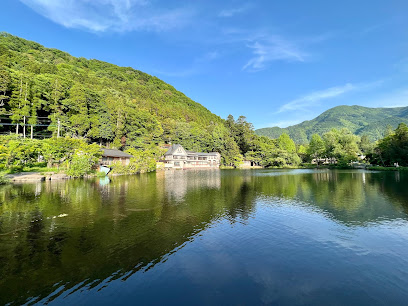
Yufuin Floral Village
Discover the enchanting Yufuin Floral Village, where charming cafes, unique shops, and picturesque scenery await every traveler in Japan.
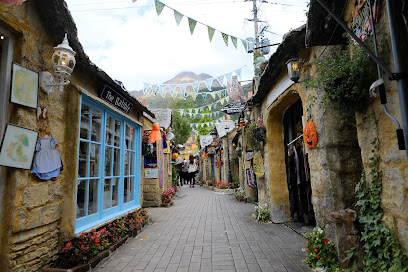
Aso-Kuju National Park Sagiridai Overlook
Experience stunning views and tranquility at the Aso-Kuju National Park Sagiridai Overlook, a must-visit observation deck in Yufu, Oita, Japan.
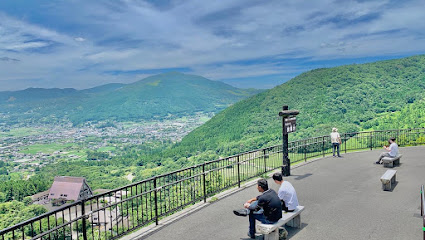
Yama no Hotel Musouen
Discover the tranquil beauty of Yama no Hotel Musouen, a traditional Japanese inn in Yufuin, offering exquisite cuisine and rejuvenating onsen experiences.

Yufuin Station
Explore the enchanting beauty of Yufuin Station, the gateway to Japan's picturesque landscapes and famous hot springs.
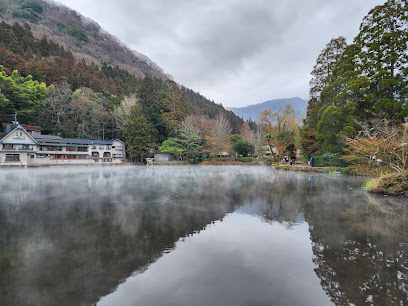
Sabo Tenjo Sajiki
Experience the tranquil beauty and unique flavors at Sabo Tenjo Sajiki, where traditional Japanese coffee meets exquisite dim sum in Yufuin.
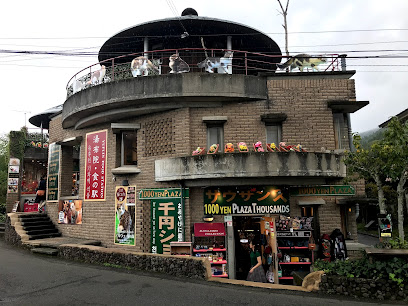
Yufuin Tsuka No Ma
Discover the serene beauty and traditional charm of Yufuin Tsuka No Ma, a Japanese inn offering relaxation and authentic experiences in Oita's picturesque landscapes.

YunotakeAn
Discover the delightful flavors of Yufuin at YunotakeAn, a premier Japanese restaurant specializing in exquisite soba noodles and traditional cuisine.
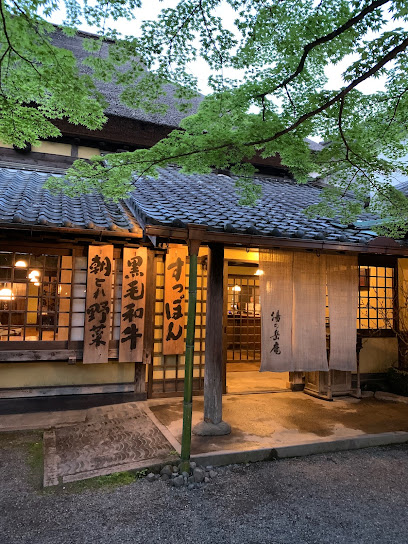
Yufuin Hotel Shuhokan
Discover the serene escape at Yufuin Hotel Shuhokan, where traditional Japanese hospitality meets breathtaking natural beauty in Yufuin Valley.

Donguri No Mori
Explore Donguri No Mori, a charming general store in Yufuin, Oita, offering local crafts and delicious snacks for an authentic Japanese experience.
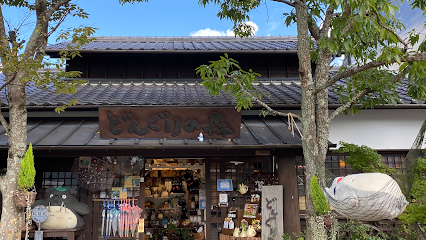
COMICO ART MUSEUM YUFUIN
Explore the enchanting COMICO ART MUSEUM YUFUIN, where contemporary art meets the serene beauty of Japan's iconic landscapes.
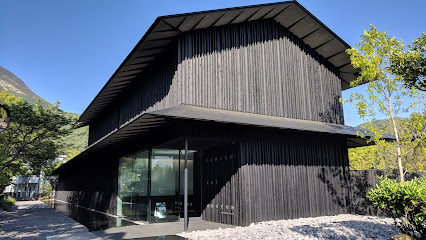
Yufuin Showa Museum
Explore the enchanting Yufuin Showa Museum, a nostalgic journey through Japan's Showa era with captivating exhibits and immersive experiences.
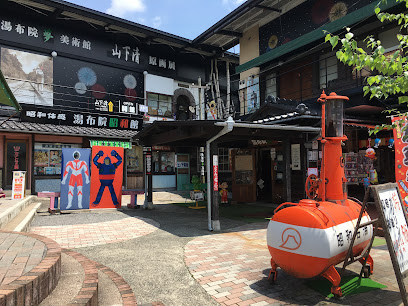
Kamenoi Besso
Discover the serene charm of Kamenoi Besso, a traditional Japanese inn in Yufuin, where relaxation and cultural experiences await every traveler.

Yufugawa canyon
Explore the enchanting Yufugawa Canyon, a scenic gem in Oita, Japan, perfect for nature lovers and outdoor adventure seekers.
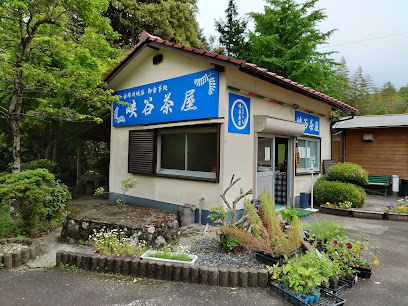
Yufuin Stained Glass Museum
Experience the beauty of stained glass artistry in the scenic town of Yufuin, where every piece tells a story.
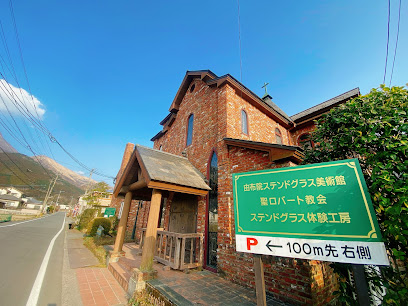
Unmissable attractions to see
Kinrin Lake
Experience the magical beauty of Kinrin Lake in Yufuin, where hot springs meet fresh water to create a mystical, must-see destination.
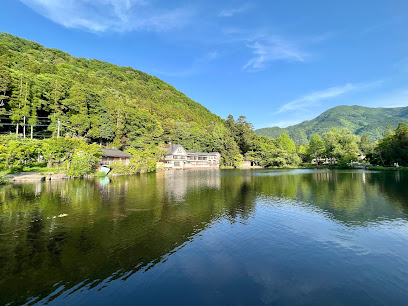
Hells of Beppu
Explore Beppu's otherworldly hot springs: a visual journey through boiling mud, vibrant waters, and geothermal wonders.
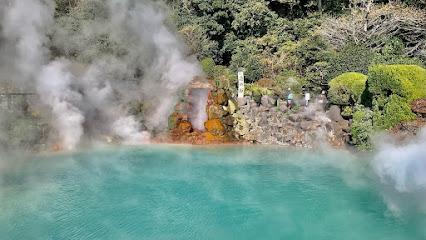
Hikosan Jingu
Discover Hikosan Jingu, a serene Shinto shrine on Mount Hiko, offering spiritual solace and stunning natural beauty in Fukuoka, Japan.
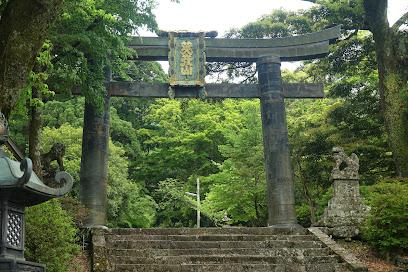
Mount Aso
Explore Mount Aso, Japan's largest active volcano, with its stunning caldera, active craters, lush grasslands, and rejuvenating hot springs.
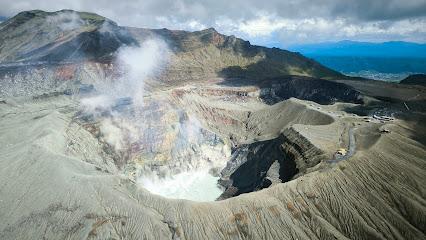
Rakanji Temple
Discover Rakanji Temple in Nakatsu: a mountainside sanctuary with thousands of Buddha statues, rich history, and breathtaking views.
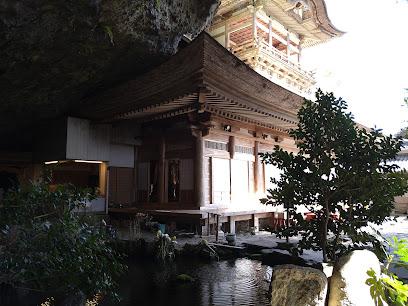
Kannawa Steam Bath
Experience a 700-year-old tradition at Kannawa Steam Bath: Relax in geothermal steam and medicinal herbs in the heart of Beppu's Kannawa district.
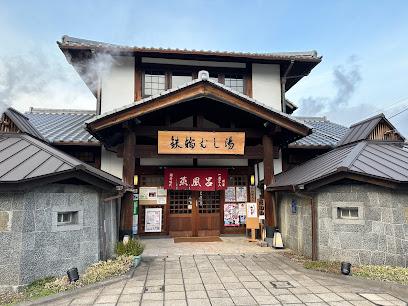
COMICO ART MUSEUM YUFUIN
Discover contemporary art in a Kengo Kuma-designed museum, harmonizing with Yufuin's natural beauty. Exhibitions by Murakami, Sugimoto, and more.
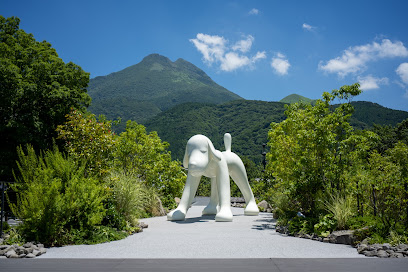
Yufuin Showa Museum
Experience the nostalgic charm of Showa-era Japan at Yufuin Showa Museum. Step back in time and immerse yourself in retro vibes!
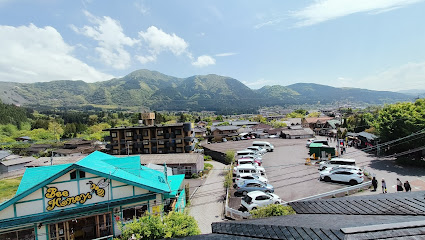
Yufugawa canyon
Discover the breathtaking beauty of Yufugawa Canyon in Yufu, Oita: a haven of natural wonders, tranquil trails, and stunning峽谷 views.
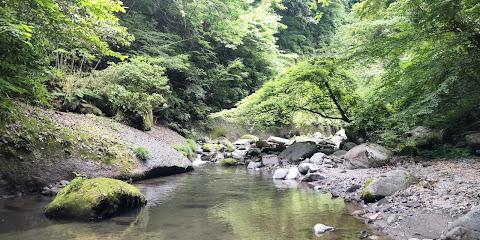
由布岳温泉
Relax and rejuvenate in Yufu's therapeutic waters with stunning views of Mount Yufu.
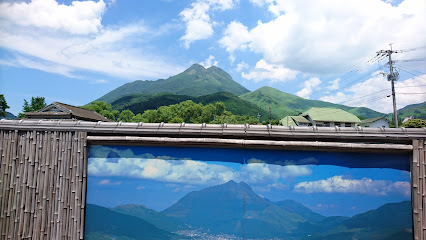
Yufuin Stained Glass Museum
Discover a unique blend of European art in a Japanese setting at the Yufuin Stained Glass Museum, showcasing antique stained glass in a tranquil environment.
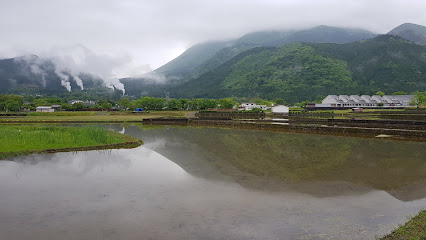
Retro Motor Museum
Discover vintage automotive history at Yufuin Retro Motor Museum in Yufu, Oita, featuring classic cars & motorcycles from around the world.
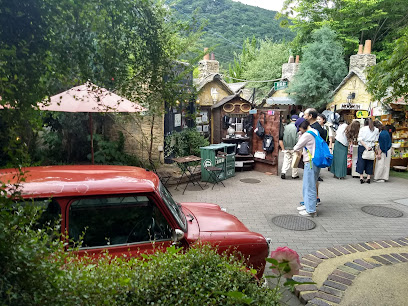
Jakoshi observatory
Experience breathtaking panoramic views of Yufuin's natural beauty from Jakoshi Observatory, a serene escape in the hills of Oita Prefecture.
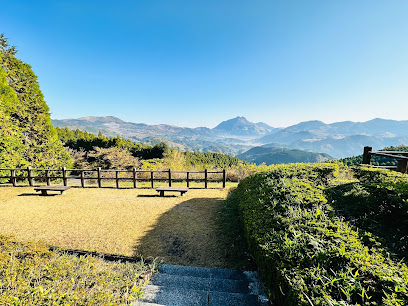
Bussanji
Discover serenity at Bussanji Temple in Yufu, Oita: a beautiful Buddhist sanctuary with tranquil gardens and rich cultural history.
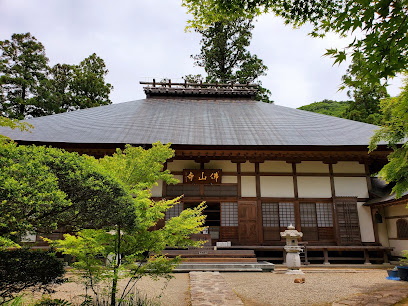
Oogosha
Discover tranquility at Ogosha Shrine in Yufuin, home to a magnificent, ancient cedar tree and peaceful forest setting.
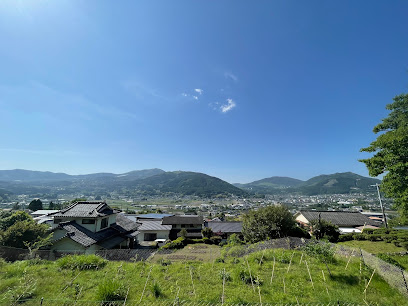
Essential places to dine
Yufumabushi Shin
Experience exquisite unagi dishes at Yufumabushi Shin, a premier Japanese regional restaurant nestled in scenic Yufuin.
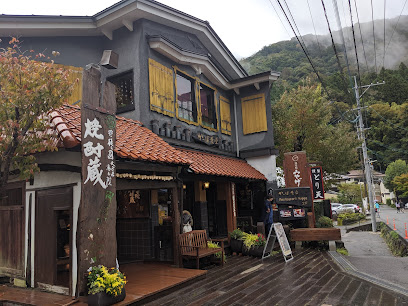
Pizzeria 櫟の丘
Experience authentic Italian cuisine at Pizzeria 櫟の丘 in Yufu – where tradition meets taste amidst stunning scenery.
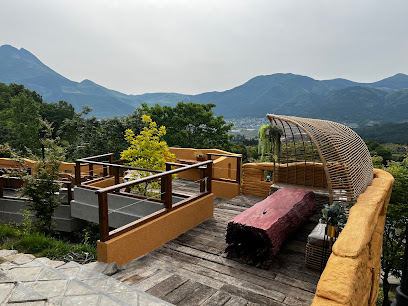
Cafe La Ruche
Discover the artistic charm of Café La Ruche in Yufu - where delectable pastries meet captivating art in a serene setting.
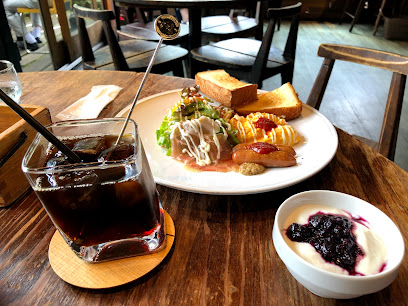
Cafe Tenjosajiki
Discover tranquility at Cafe Tenjosajiki – where exquisite dim sum meets artisanal coffee amidst breathtaking views in Yufuin.
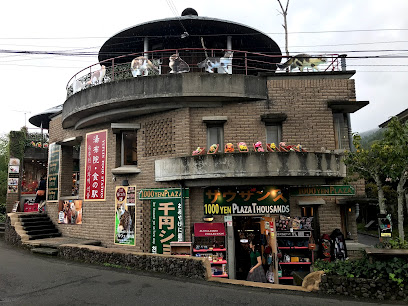
YunotakeAn
Experience authentic soba noodles and exquisite Japanese cuisine at YunotakeAn in beautiful Yufu.
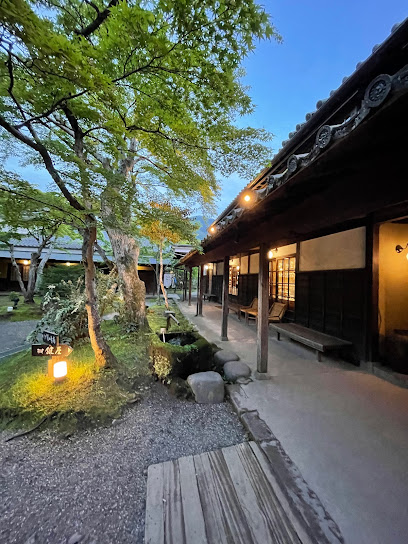
七輪炭火焼 啓修庵
Experience authentic Japanese barbecue at 七輪炭火焼 啓修庵 in Yufuin - where every bite tells a story of flavor and tradition.
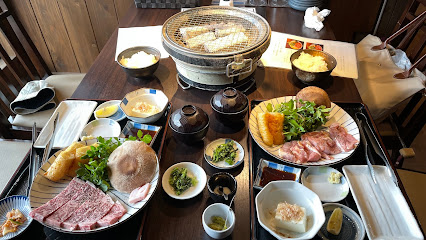
Kikusuke
Experience authentic handmade udon noodles at Kikusuke in Yufuin – where tradition meets taste in a stunning mountain setting.
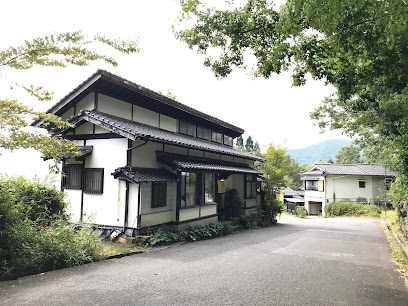
Yufuin Burger House
Discover gourmet hamburgers in the scenic heart of Yufuin—where local flavors meet culinary creativity.
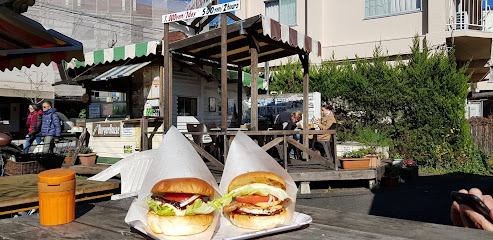
InakaAn
Discover authentic udon noodles at InakaAn, a charming eatery nestled in the scenic town of Yufuin.
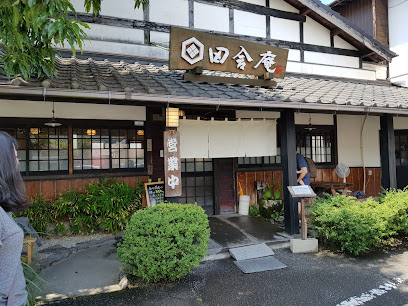
Wasaku
Experience authentic Japanese Yakiniku at Wasaku in Yufuin - where high-quality meats meet stunning mountain views.
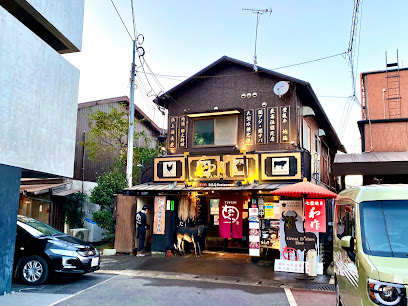
Yufuin Senke
Discover the essence of Japanese cuisine at Yufuin Senke—where local flavors meet breathtaking views in the heart of Yufu.
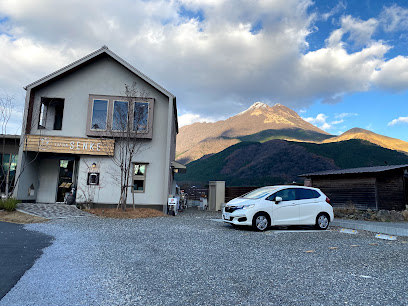
Yufuin Sanshoro
Experience exquisite Kaiseki cuisine in Yufuin's serene setting at Yufuin Sanshoro - where tradition meets taste.
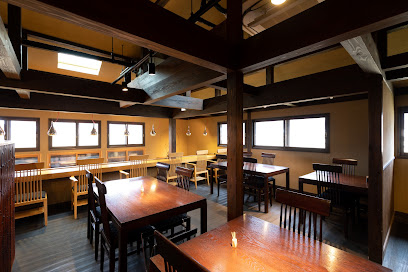
和牛専門店 YUFUYA
Savor exquisite Wagyu beef at YUFUYA - an exceptional yakiniku restaurant in the scenic town of Yufuin.
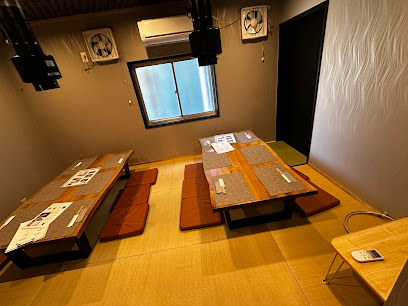
Yufuin Amamichaya
Experience the essence of Japanese regional cuisine at Yufuin Amamichaya in scenic Yufuin - where tradition meets taste.
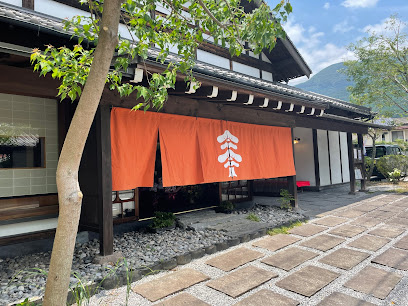
Restaurant Lamp House
Experience exquisite Japanized Western cuisine at Restaurant Lamp House in Yufuin – where local flavors meet French finesse.
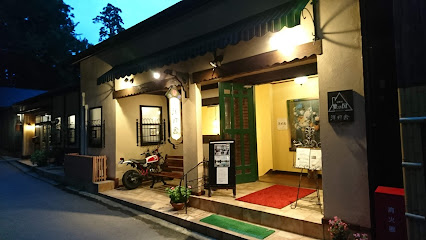
Markets, malls and hidden boutiques
Yufuin Floral Village
Explore Yufuin Floral Village, a charming blend of cafes, shops, and a zoo, set against a picturesque landscape in Japan.
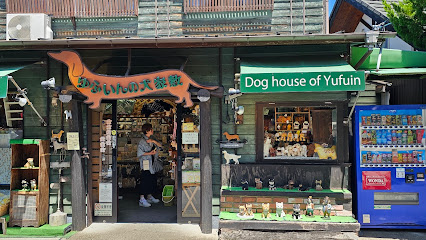
Donguri No Mori
Experience the essence of Japanese culture at Donguri No Mori, a quaint general store in Yufuin, offering unique crafts and local delicacies.
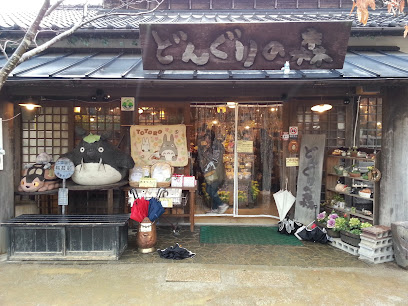
BeeHoney
Discover the enchanting flavors of honey at BeeHoney, a charming store in Yufu offering delightful honey-based products and artisanal treats.
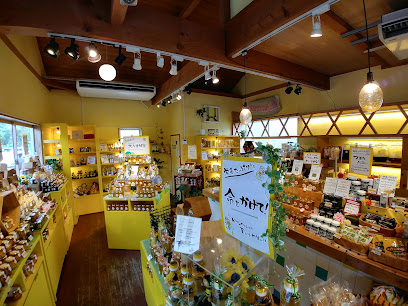
Yufuin no Neko Yashiki
Explore Yufuin no Neko Yashiki, a delightful variety store offering unique fashion accessories and hobby items in the heart of Yufuin, Japan.
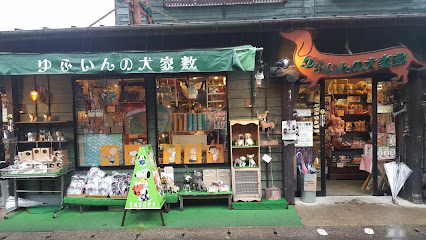
Totoro
Experience the essence of Oita at Totoro Shopping Mall, where local culture meets modern retail in a delightful shopping haven.
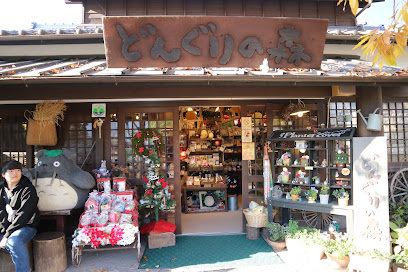
Hina Shin Confectionary Shop Yufuin
Experience the delightful world of Japanese sweets at Hina Shin Confectionary Shop Yufuin, where tradition meets flavor in a charming atmosphere.
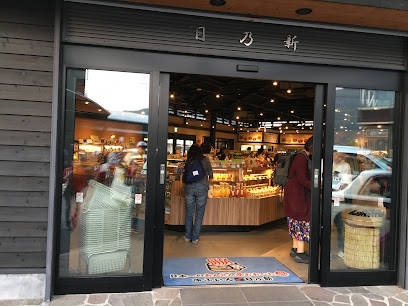
Yufuin Music Box Forest
Explore the enchanting Yufuin Music Box Forest, a charming souvenir store filled with melodious treasures and unique gifts from Japan.
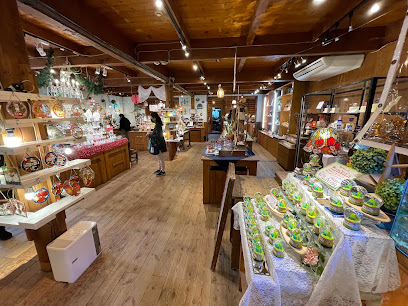
Yufuin Shochugura
Explore the cultural treasures at Yufuin Shochugura, a charming souvenir store offering unique local crafts and delightful snacks in picturesque Yufuin.
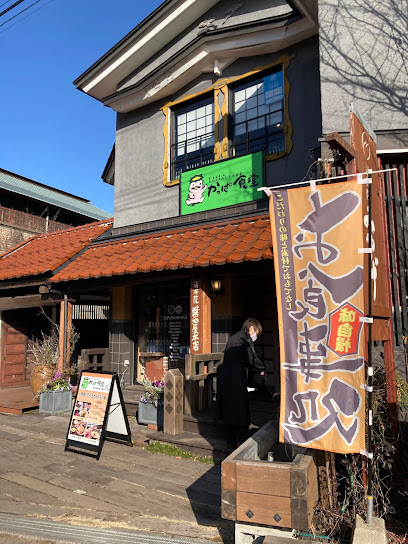
ゆふいん 一休
Discover Yufuin 一休, your go-to souvenir store for authentic Japanese crafts and local delicacies in the heart of Yufu, Oita.
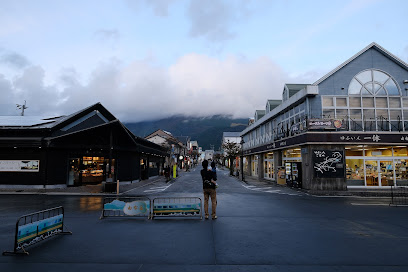
クラフト館 蜂の巣
Discover the charm of Yufu at Craft Pavilion Bee's Nest, where local craftsmanship meets delightful shopping in a warm atmosphere.
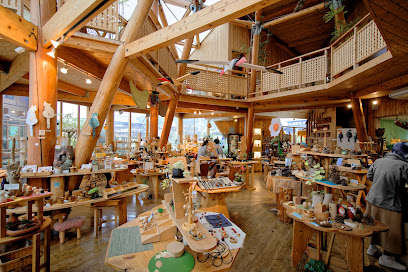
ドゥ・パルファン
Explore the artistic charm of Yufuin at ドゥ・パルファン, your go-to variety store for unique souvenirs and local crafts.
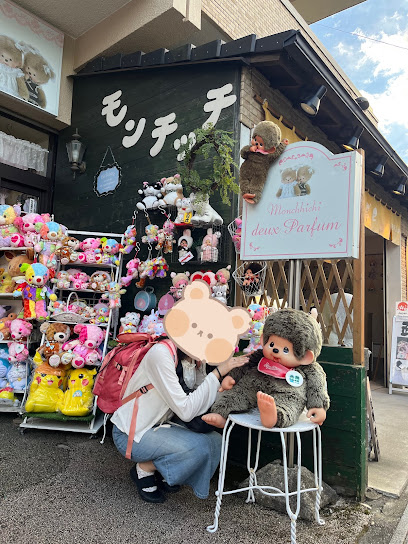
ゆふいん夢蔵
Explore the charm of Yufuin at Yufuin Yumekura, a souvenir store brimming with local crafts and unique gifts that capture the essence of Japan.
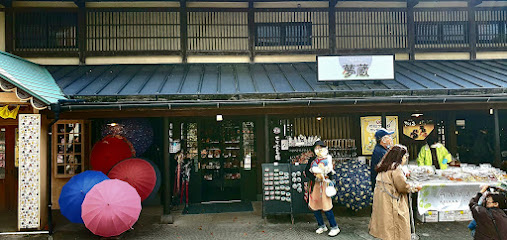
ヘラクレス
Explore the charm of Yufuin at ヘラクレス, your go-to novelty store for unique souvenirs and handmade crafts.
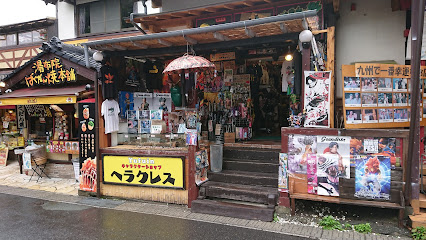
匠舗 蔵拙
Discover the essence of Japanese craftsmanship at 匠舗 蔵拙, where every gift tells a story of tradition and culture.
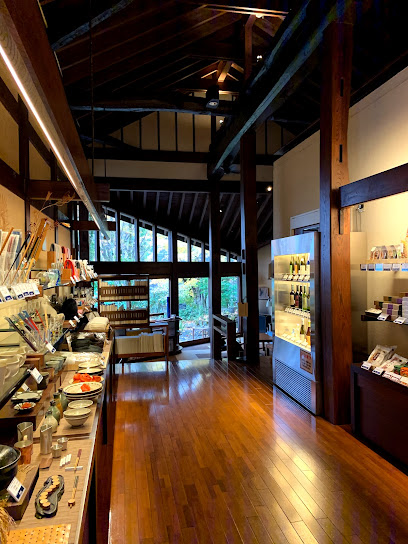
多組ショップ湯布院
Explore Takumi Shop Yufuin for unique souvenirs and local craftsmanship in the scenic heart of Yufuin.
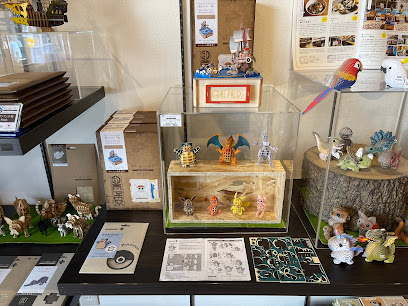
Essential bars & hidden hideouts
Bar Stir
Discover the cozy ambiance and exquisite cocktails at Bar Stir, Yufuin's favorite spot for evening relaxation and socializing.
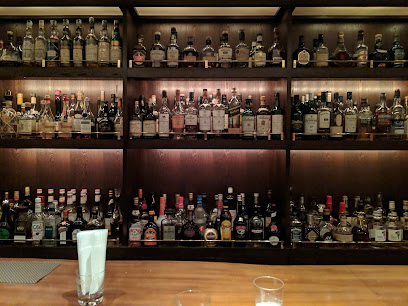
DAY CAMP(デイキャンプ)
Discover the perfect blend of Japanese cuisine and outdoor adventure at DAY CAMP in Yufuin, a unique sports bar and izakaya experience.
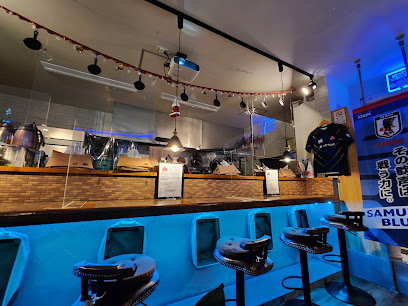
하나구시
Discover the warmth of Yufu at 하나구시, a charming bar offering delightful drinks and a cozy atmosphere for tourists.
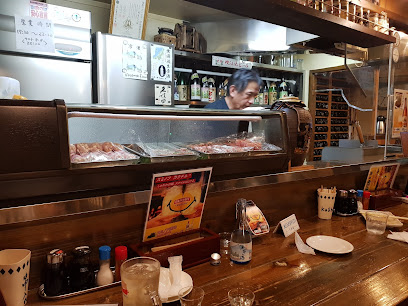
バー山猫
Discover the warmth and charm of バー山猫, a cozy bar in Yufu, Oita, offering delightful drinks and a welcoming atmosphere for all visitors.
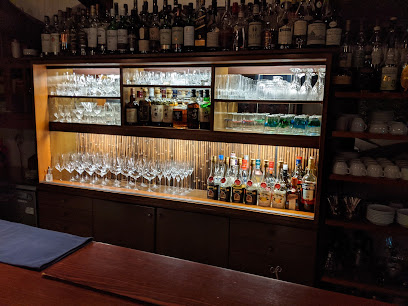
NORA-NOA
Experience the joy of karaoke and cozy café vibes at NORA-NOA in Yufu, where every night is a celebration of music and friendship.
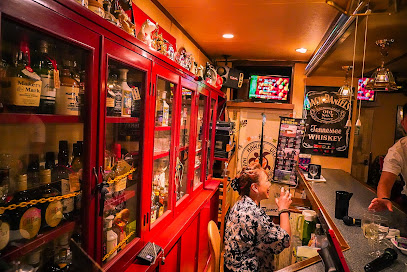
さざん花
Experience the charm of Yufuin at さざん花, where exquisite drinks and a cozy atmosphere promise unforgettable moments.
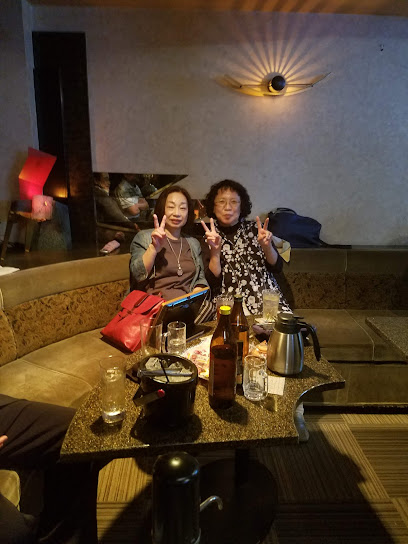
VAMOS (パチンコ店2階)
Discover the vibrant nightlife at VAMOS in Yufu, where locals and travelers unite over delicious drinks and great company.
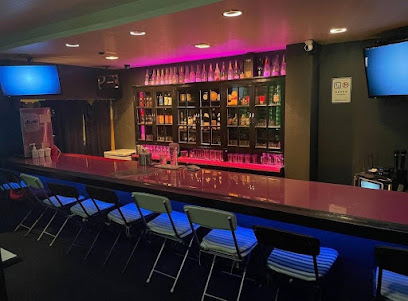
BAR TAKADA
Discover the cozy ambiance and local flavors at BAR TAKADA, the ideal pub for unwinding in the heart of Yufu.
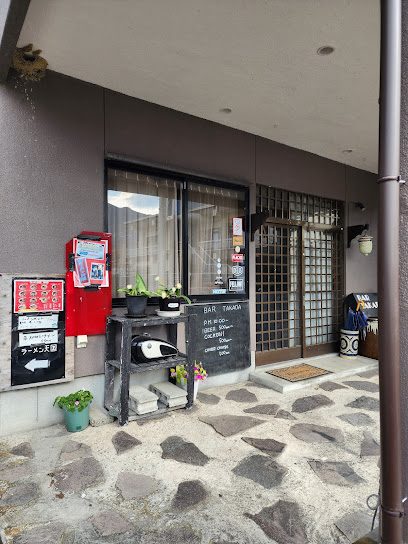
スナック夢彩
Discover the charm of Yufu at スナック夢彩, a cozy pub and snack bar serving local flavors and warm hospitality.
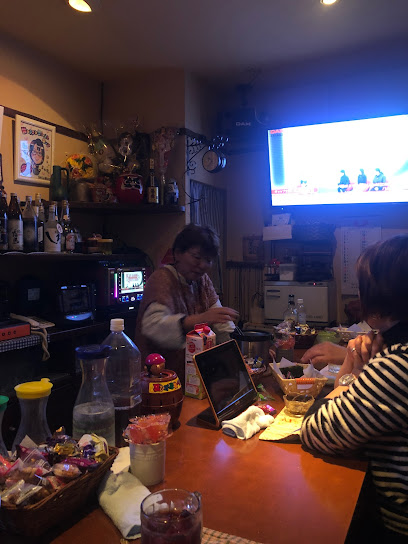
グランジ
Explore the delightful world of natural wines at Grange Wine Bar in Yufu, where local flavors and cozy ambiance create unforgettable moments.
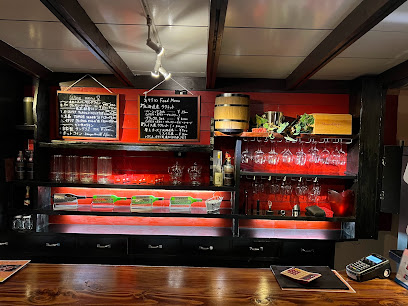
スナック房樹
Experience the delightful flavors and cozy ambiance of スナック房樹, a must-visit snack bar and pub in the heart of Yufuin, Japan.
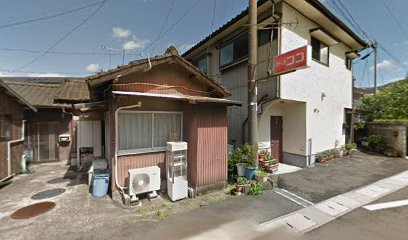
squid & beer
Discover the flavors of Yufuin at Squid & Beer, where fresh squid dishes meet a diverse selection of beers in a cozy bar atmosphere.
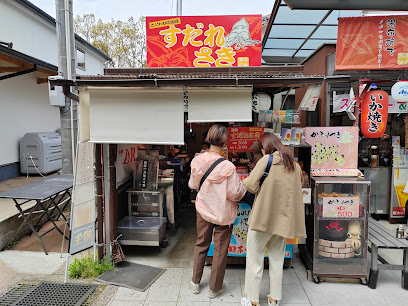
榎屋茶房
Discover tranquility at Enokiya Tea House in Yufuin, where exquisite Japanese teas and serene surroundings create the perfect escape.
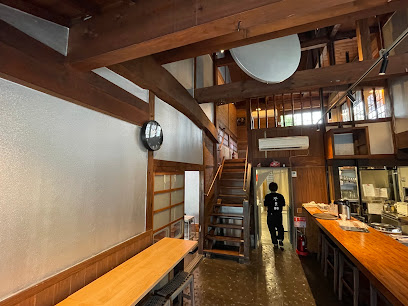
café et Bar Bartholdi (バルトルディ)
Unwind and revel in the vibrant karaoke scene at Café et Bar Bartholdi, where music meets local culture in Yufu's nightlife.
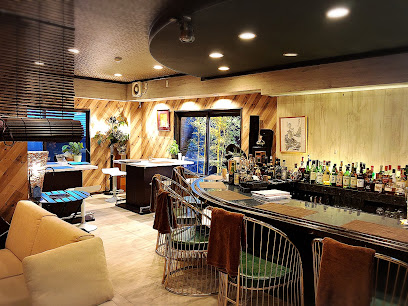
みちくさ
Discover the cozy charm of みちくさ, a delightful pub in Yufuin offering local beverages and a taste of Japanese hospitality.
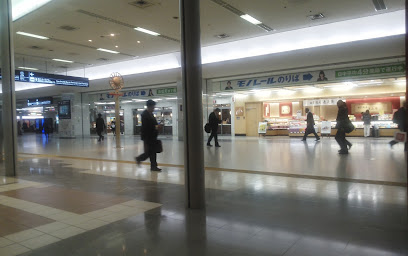
Local Phrases about Yufuin
-
- Helloこんにちは
[Konnichiwa] - Goodbyeさようなら
[Sayonara] - Yesはい
[Hai] - Noいいえ
[Iie] - Please/You're welcomeどうぞ
[Douzo] - Thank youありがとうございます
[Arigatou gozaimasu] - Excuse me/Sorryすみません
[Sumimasen] - How are you?お元気ですか?
[Ogenki desu ka?] - Fine. And you?元気です。あなたは?
[Genki desu. Anata wa?] - Do you speak English?英語を話せますか?
[Eigo o hanasemasu ka?] - I don't understandわかりません
[Wakarimasen]
- Helloこんにちは
-
- I'd like to see the menu, pleaseメニューを見せてください
[Menyuu o misete kudasai] - I don't eat meat肉は食べません
[Niku wa tabemasen] - Cheers!乾杯!
[Kanpai!] - I would like to pay, pleaseお会計をお願いします
[Okaikei o onegaishimasu]
- I'd like to see the menu, pleaseメニューを見せてください
-
- Help!助けて!
[Tasukete!] - Go away!行って!
[Itte!] - Call the Police!警察を呼んで!
[Keisatsu o yonde!] - Call a doctor!医者を呼んで!
[Isha o yonde!] - I'm lost道に迷ってしまいました
[Michi ni mayotte shimaimashita] - I'm ill具合が悪い
[Guai ga warui]
- Help!助けて!
-
- I'd like to buy...・・・を買いたいです
[.... o kaitai desu] - I'm just lookingちょっと見てるだけです
[Chotto miteru dake desu] - How much is it?いくらですか?
[Ikura desu ka?] - That's too expensiveそれは高すぎます
[Sore wa takasugimasu] - Can you lower the price?値段を下げてもらえますか?
[Nedan o sagete moraemasu ka?]
- I'd like to buy...・・・を買いたいです
-
- What time is it?今何時ですか?
[Ima nanji desu ka?] - It's one o'clock1時です
[Ichiji desu] - Half past (10)10時半です
[Juujihan desu] - Morning朝
[Asa] - Afternoon午後
[Gogo] - Evening夕方
[Yuugata] - Yesterday昨日
[Kinou] - Today今日
[Kyou] - Tomorrow明日
[Ashita] - 1一
[Ichi] - 2二
[Ni] - 3三
[San] - 4四
[Yon] - 5五
[Go] - 6六
[Roku] - 7七
[Nana] - 8八
[Hachi] - 9九
[Kyu] - 10十
[Ju]
- What time is it?今何時ですか?
-
- Where's a/the...?・・・はどこですか?
[.... wa doko desu ka?] - What's the address?住所は何ですか?
[Juusho wa nan desu ka?] - Can you show me (on the map)?地図で見せてもらえますか?
[Chizu de misete moraemasu ka?] - When's the next (bus)?次の(バス)はいつですか?
[Tsugi no (basu) wa itsu desu ka?] - A ticket (to ....)チケット(・・・まで)
[Chiketto (.... made)]
- Where's a/the...?・・・はどこですか?
History of Yufuin
-
Yufuin's history dates back to ancient times when it was initially settled during the Jomon period, roughly 14,000 to 300 BCE. Archaeological findings, including pottery and stone tools, suggest that the area was inhabited by early hunter-gatherer communities. The fertile lands and abundant natural resources made it an ideal location for early human settlement.
-
During the Heian period (794-1185), Buddhism began to flourish in Yufuin. The establishment of temples like the Bussanji and Unagihime Shrines played a significant role in the cultural development of the area. These temples became centers of religious activity and pilgrimage, attracting monks, scholars, and devotees from various regions.
-
In the Kamakura period (1185-1333) and Muromachi period (1336-1573), Yufuin was under the control of various feudal lords and samurai clans, including the Otomo and Kuroda clans. The strategic location of Yufuin made it a valuable asset in regional power struggles. Castles and fortifications were constructed, remnants of which can still be seen in the area.
-
During the Edo period (1603-1868), Yufuin transitioned into a more peaceful and agriculturally focused community. The introduction of new farming techniques and crops, such as rice and barley, led to increased agricultural productivity. The town's hot springs were also utilized for therapeutic purposes, attracting visitors seeking healing and relaxation.
-
The Meiji Restoration in 1868 marked the beginning of modernization in Japan, and Yufuin was no exception. The construction of railways and improved infrastructure facilitated easier access to the town. By the 20th century, Yufuin had transformed into a popular tourist destination, celebrated for its hot springs, scenic beauty, and cultural heritage.
-
Yufuin is renowned for its vibrant cultural festivals, such as the Yufuin Music Festival and the Yufuin Film Festival. These events showcase the town's artistic heritage and attract visitors from all over the world. Traditional crafts, local cuisine, and performing arts are integral parts of these festivals, reflecting the rich cultural tapestry of Yufuin.
-
The natural hot springs, or 'onsen', are a cornerstone of Yufuin's culture and history. The town boasts numerous onsen resorts and public baths, each offering unique bathing experiences. The therapeutic properties of the hot springs have been valued for centuries, making Yufuin a sought-after destination for relaxation and wellness.
Yufuin Essentials
-
Yufuin is located in Oita Prefecture on the island of Kyushu, Japan. The nearest airport is Oita Airport, which is about 50 kilometers away. From the airport, you can take an airport shuttle bus to Yufuin, a journey that takes approximately 55 minutes. Alternatively, you can travel by train from major cities like Tokyo, Osaka, and Fukuoka. From Fukuoka, take the JR Kyushu Shinkansen to Hakata Station and then transfer to the Limited Express Yufu or Yufuin no Mori, which will take you directly to Yufuin Station.
-
Yufuin is a small town and most attractions are within walking distance. For more convenience, you can rent bicycles from local shops to explore the area. Taxis are also available, but they can be expensive. For trips outside Yufuin, you can use the local bus service or rent a car. Be sure to check the bus schedules as they can be infrequent, especially in the evening.
-
The official currency in Japan is the Japanese Yen (JPY). Credit and debit cards are widely accepted in hotels, larger restaurants, and shops. However, it is advisable to carry cash, especially when visiting smaller establishments and rural areas. ATMs that accept foreign cards are available at post offices and convenience stores like 7-Eleven and Lawson.
-
Yufuin is generally a very safe destination for tourists. Crime rates are low, but it is always wise to take standard precautions. Avoid leaving your belongings unattended and be cautious in crowded areas. There are no specific high-crime areas targeting tourists in Yufuin, but always remain vigilant and aware of your surroundings.
-
In case of emergency, dial 110 for police assistance and 119 for fire or medical emergencies. Yufuin has a local police station and medical clinics that can provide basic healthcare. For more serious medical concerns, the nearest hospital is in Oita City. It is highly recommended to have travel insurance that covers medical emergencies. Pharmacies are available in the town for over-the-counter medications.
-
Fashion: Do dress modestly, especially when visiting religious sites. Avoid overly casual attire in more formal settings. Religion: Do respect local customs and traditions. Always bow slightly when greeting or parting from someone. Public Transport: Do be respectful and quiet on public transport. Don't talk on your phone or eat while on buses or trains. Greetings: Do greet people with a slight bow or a nod. A friendly 'Konnichiwa' (Hello) is always appreciated. Eating & Drinking: Do try local delicacies and accept food offerings graciously. Don't tip, as it is not customary in Japan and can be considered rude.
-
To experience Yufuin like a local, visit the morning markets for fresh produce and handmade crafts. Take a leisurely stroll along Yunotsubo Kaido Street, lined with quaint shops and cafes. Don't miss the opportunity to relax in one of Yufuin's famous hot springs (onsen). For a unique experience, visit the Yufuin Floral Village, a charming area designed to resemble a European fairy tale village.
Trending Landmarks in Yufuin
-
Kinrin Lake
-
Yufuin Floral Village
-
Aso-Kuju National Park Sagiridai Overlook
-
Yama no Hotel Musouen
-
Yufuin Station
-
Sabo Tenjo Sajiki
-
Yufuin Tsuka No Ma
-
YunotakeAn
-
Yufuin Hotel Shuhokan
-
Donguri No Mori
-
COMICO ART MUSEUM YUFUIN
-
Yufuin Showa Museum
-
Kamenoi Besso
-
Yufugawa canyon
-
Yufuin Stained Glass Museum
Nearby Cities to Yufuin
-
Things To Do in Hiroshima
-
Things To Do in Busan
-
Things To Do in Ulsan
-
Things To Do in Gyeongju
-
Things To Do in Pohang
-
Things To Do in Daegu
-
Things To Do in Suncheon
-
Things To Do in Osaka
-
Things To Do in Andong
-
Things To Do in Nara
-
Things To Do in Jeju City
-
Things To Do in Kyoto
-
Things To Do in Gwangju
-
Things To Do in Jeonju
-
Things To Do in Mokpo








